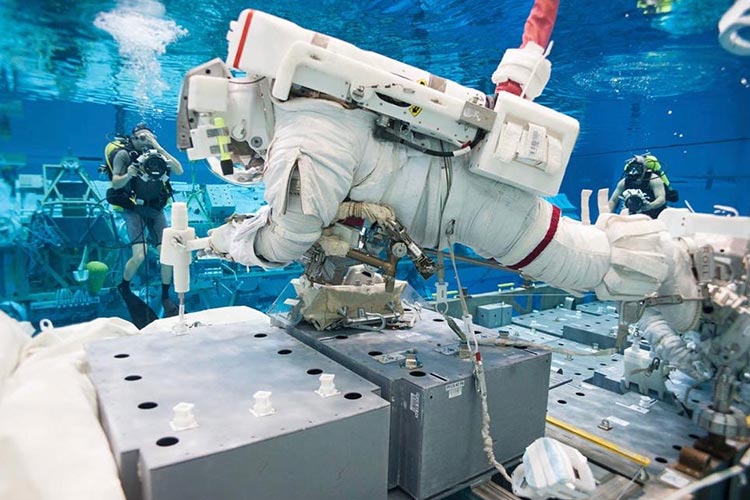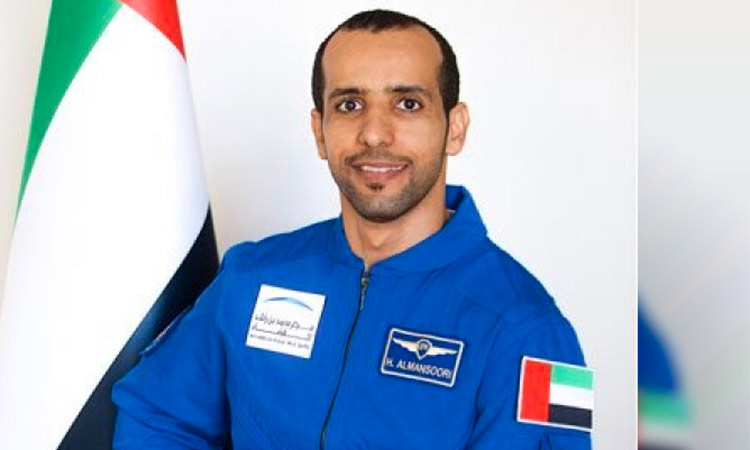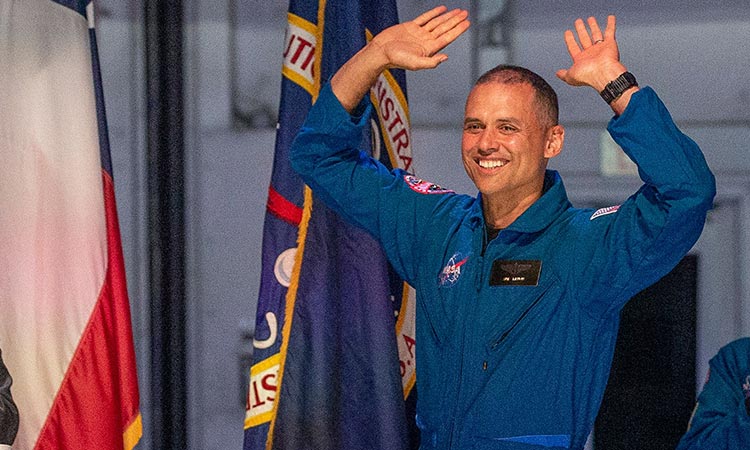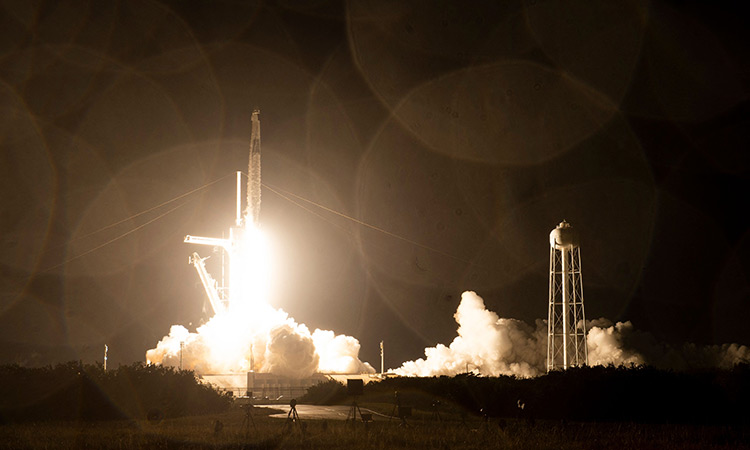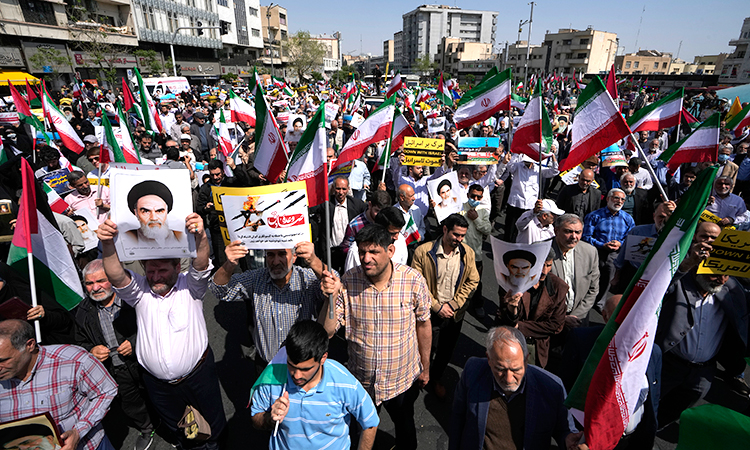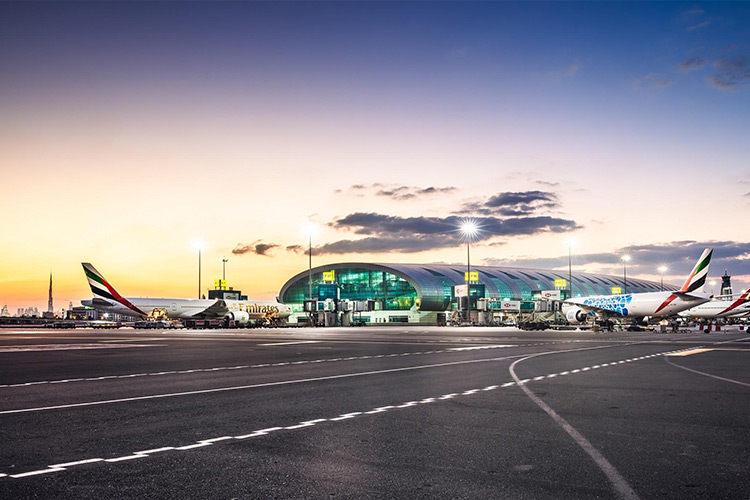UAE astronauts begin training at Nasa space centre
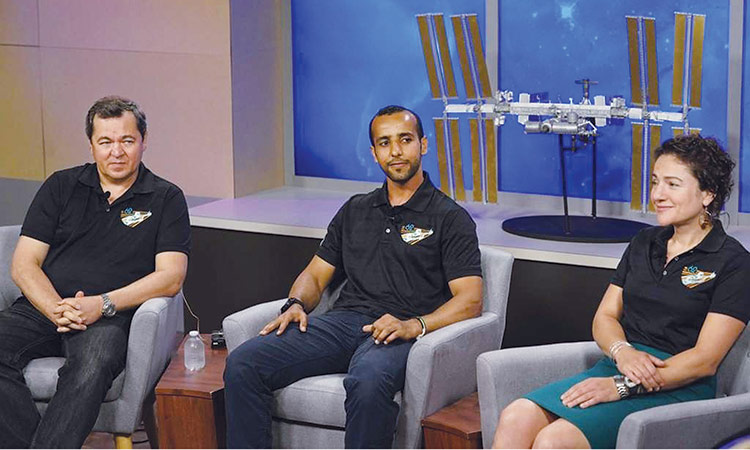
The two-week programme includes training on various units and components of the US segment of the ISS.
The two-week programme includes training on various units and components of the US segment of the International Space Station (ISS), which includes the Japan Kibo laboratory and the Columbus Laboratory, to conduct scientific research in cooperation with Nasa. The training is part of the preparations for the first Emirati astronaut to travel to the ISS, in approximately 10 weeks from now, aboard the Russian Soyuz-MS 15. Nasa also held a press conference for the mission’s main crew, which is set to travel on Sept.25.
The mission’s main crew is composed of flight leader Cosmonaut Oleg Scripochka and Nasa Astronaut Jessica Meir.
This is part of an agreement between the Mohammed Bin Rashid Space Centre (MBRSC) and NASA to conduct a series of training for the two Emirati astronauts at the Lyndon B JSC and to conduct scientific research suited to short-term missions to the ISS.
The training that the astronauts are undergoing includes receiving an overview on Nasa equipment and devices on board the space station, in addition to handling emergency situations, especially ammonia gas leakage and depressurisation.
Al Mansoori and Al Neyadi will get to learn more about the ISS through a complete model of the station located at Nasa headquarters.
The model includes the Russian and American segments.
The Nasa training programme includes scientific experiments that will be conducted by the mission’s crew.
The research examines the impact of space on humans in a micro-gravity environment.
As Al Mansoori arrives, the nine-person crew aboard ISS, will undergo a series of experiments that cannot be conducted on Earth.
These efforts will contribute to the expansion of human knowledge of land, space, and physical and biological sciences that will benefit humanity.
Yousuf Hamad Al Shaibani, Director General of MBRSC, said, “MBRSC is committed to making strategic partnerships with major international space agencies, as part of our efforts to support the UAE in preparing Emirati cadres to enrich scientific progress to serve humanity and make further achievements in space industry, science and research.
This serves the ambitious aspirations of a national economy based on knowledge, innovation, and creativity. The Nasa training follows a training that the astronauts received last month at the European Astronaut Centre (EAC) of the European Space Agency (ESA) in Germany, in preparation for sending the first Emirati astronaut in about 10 weeks.”
Salem Al Marri, Assistant Director General for Science and Technology Sector, Head of UAE Astronaut Programme, highlighted that these exercises are essential for enhancing the skills of Al Mansoori and Al Neyadi to enable them to use the equipment at the ISS, and identify several aspects of life aboard the station, such as preparing food.
“By sending the first Arab astronaut to the ISS, the UAE contributes to enriching scientific experiments that study microgravity, including its impact on the human body,” added Al Marri.
“This is a huge responsibility for us, and we are ready to do our best to make it a success, especially with the high-level training we are receiving, and the hard work we do with the crew. Through the scientific experiments that we will take part in, we hope to leave a mark for the UAE in the record of human space missions, which contributes to the enrichment of human knowledge,” said Al Mansoori at Nasa’s press conference.
Al Mansoori will travel for an eight-day space mission to the ISS aboard a Soyuz-MS 15 spacecraft from the Baikonur Cosmodrome in Kazakhstan on Sept.25, 2019 and return to Earth aboard a Soyuz-MS 12.
MBRSC runs and manages the UAE Astronaut Programme, which is part of the UAE National Space Programme, and aims to prepare the first Emirati astronaut corps to participate in global space exploration missions.
The programme contributes to achieving the national strategy to develop young Emirati cadres and prepare future generations, according to the highest international standards, and achieve their aspirations to participate in scientific explorations, as well as the aspirations of the UAE in this field.
The UAE Astronaut Programme, funded by the ICT fund of the Telecommunications Regulatory Authority (TRA).
Launched in 2007, this fund, which is the first of its kind in the Arab world, aims towards supporting research and development within the ICT sector in the UAE, helping it to grow into a nationally significant industry with a leading place in the world.
The Mohammed Bin Rashid Space Centre, founded in 2006, is home to the UAE National Space Programme.
The Centre builds and operates earth observation satellites, offering imaging and data analysis services to clients around the world.
The Centre launched DubaiSat-1, DubaiSat-2, and recently launched KhalifaSat on Oct.29, 2018 from Tanegashima Space Center in Japan.
KhalifaSat was developed 100 per cent in the UAE by a team of highly qualified Emirati engineers.
The Centre is responsible for the development of the Emirates Mars Mission and the Mars Hope Probe, a mission to reach Mars orbit by 2021 and gather key science data about Mars’ atmosphere, as well as the UAE Astronaut Programme and the development of the Mars 2117 vision to build a human colony on Mars.
